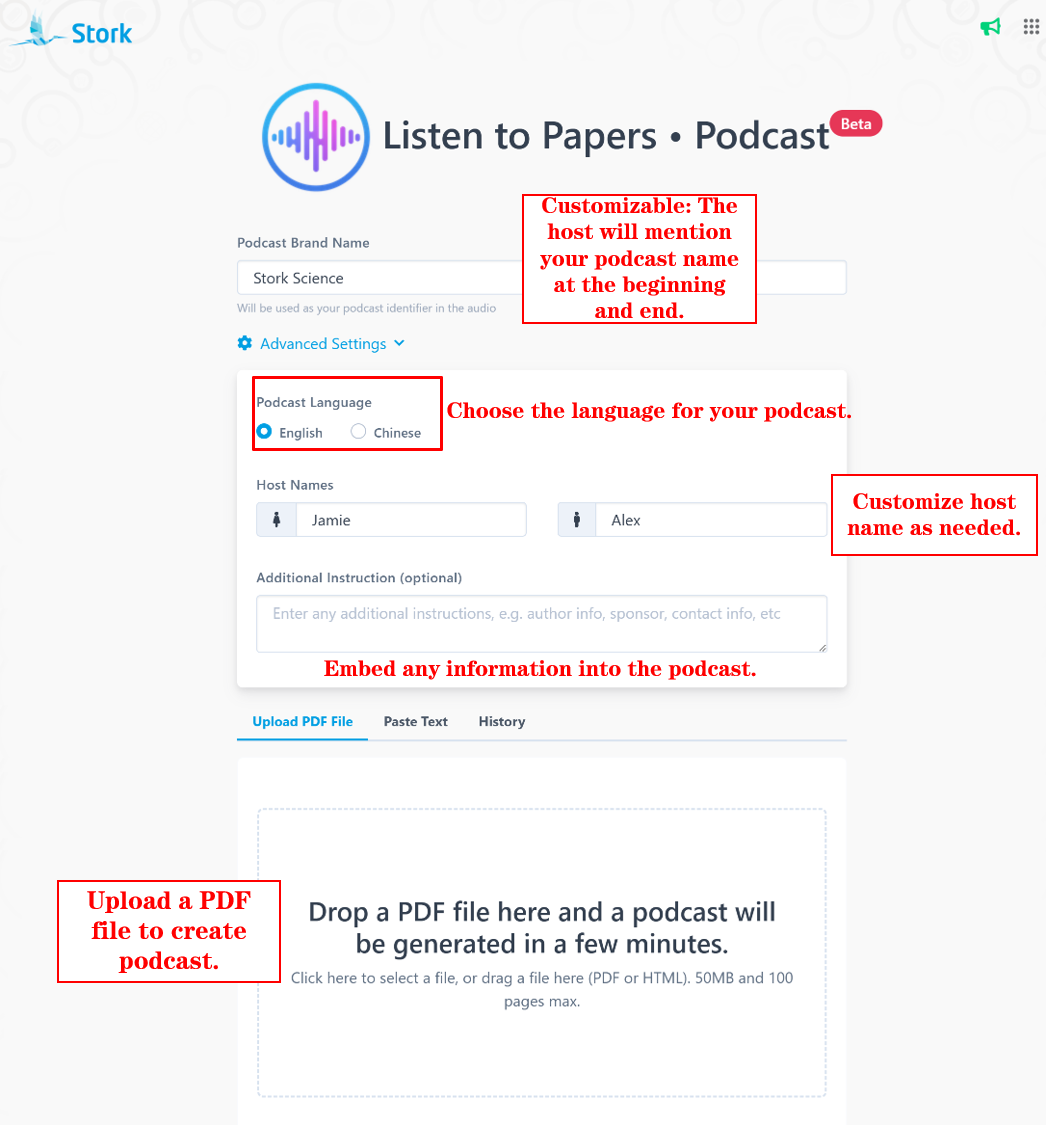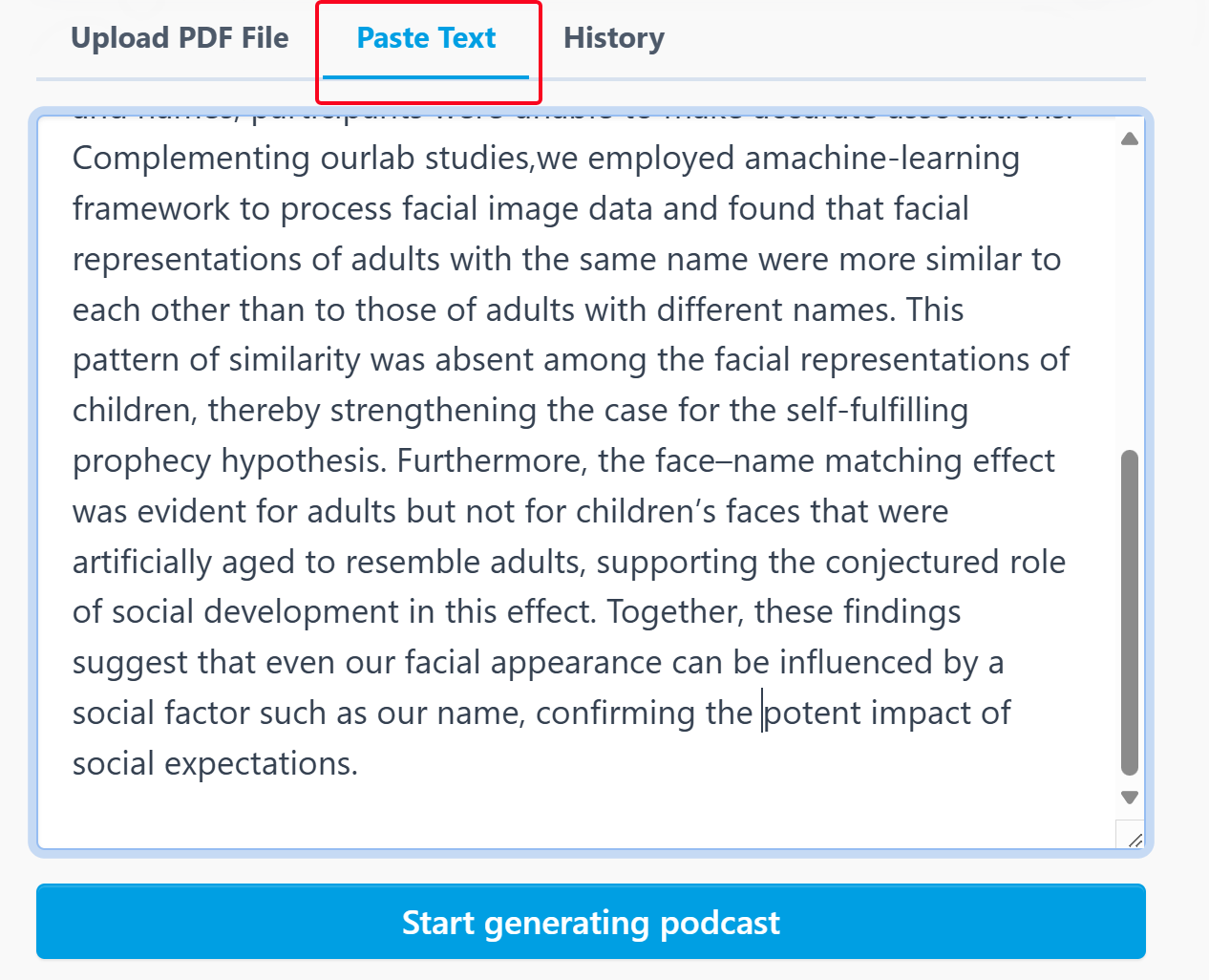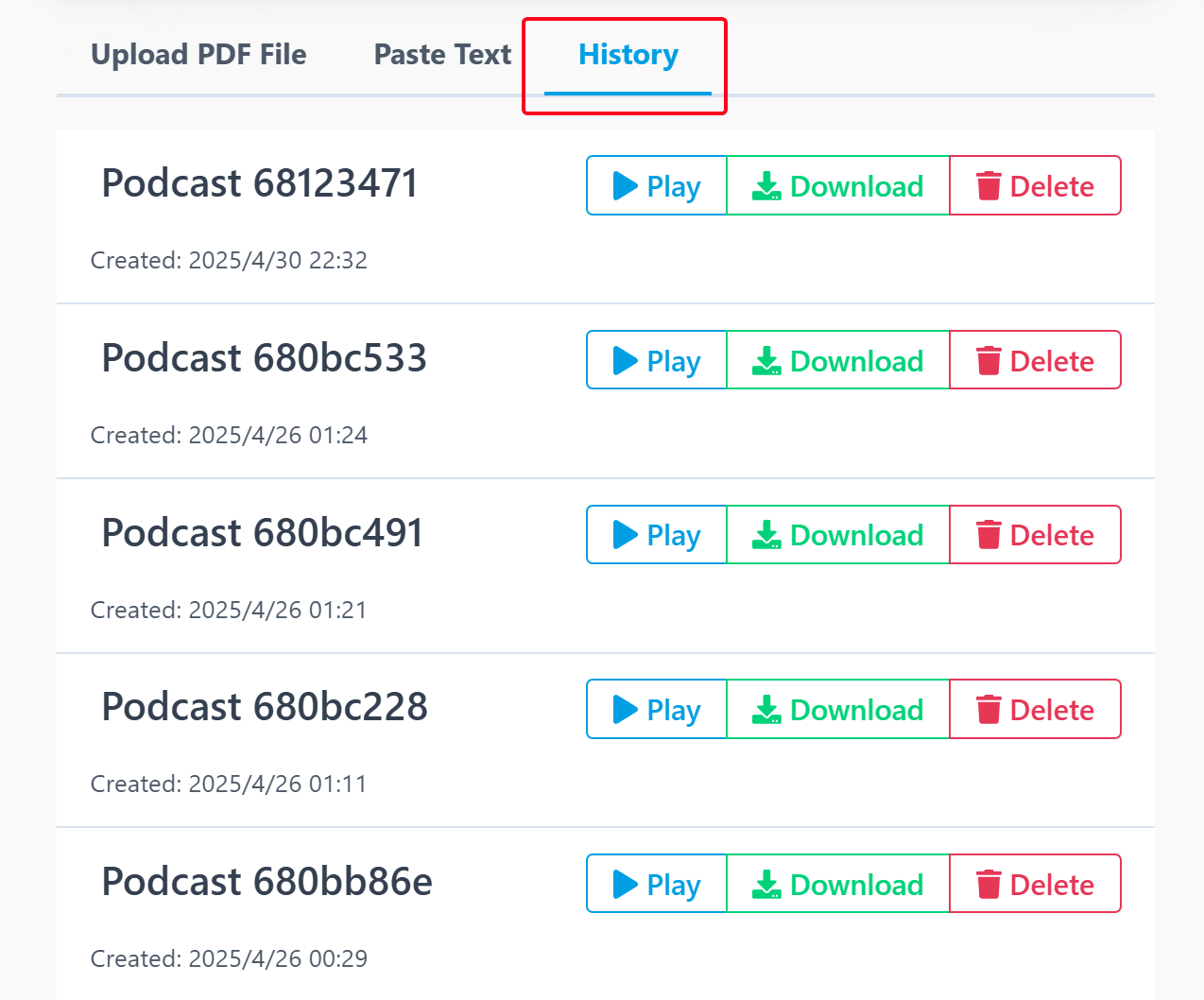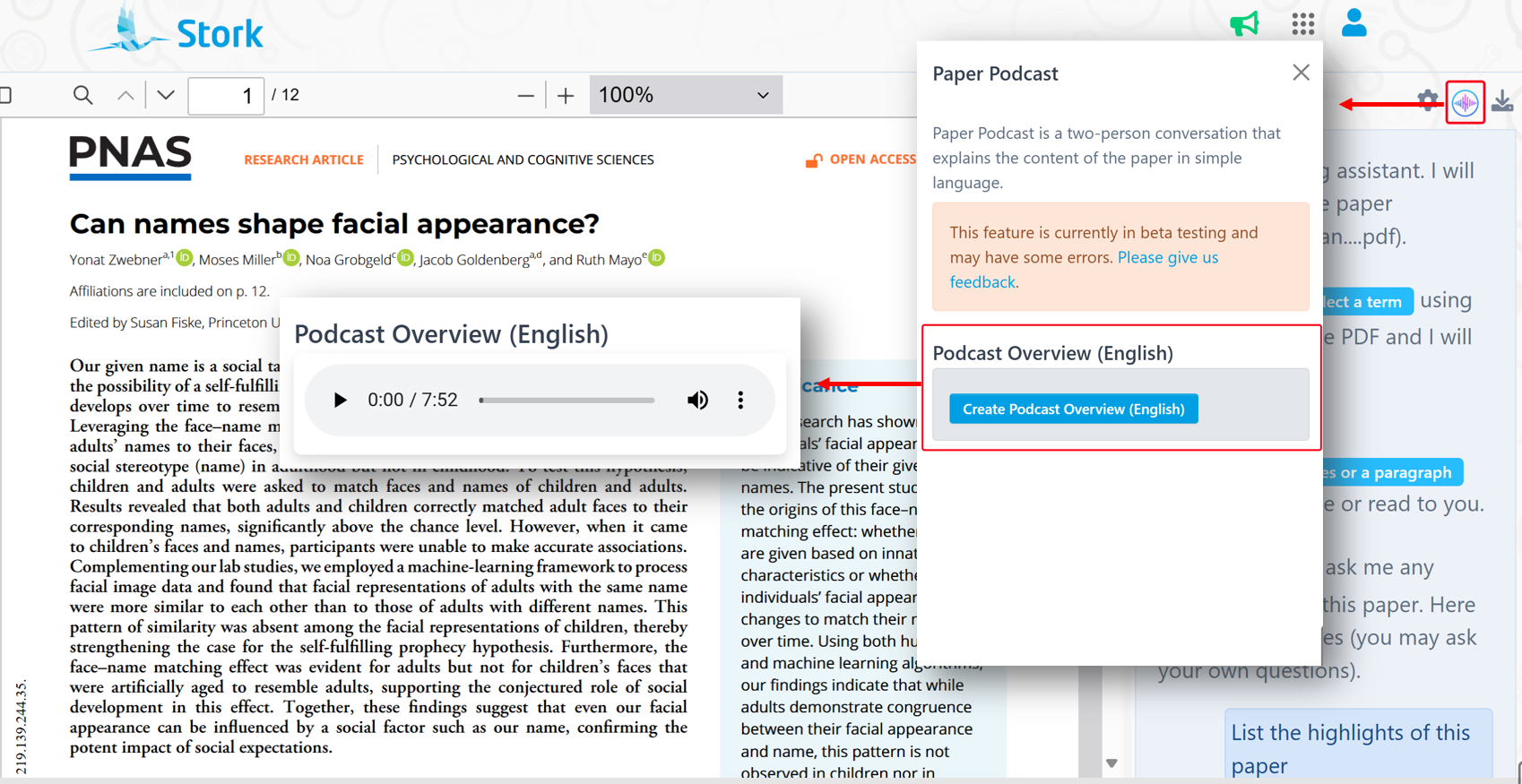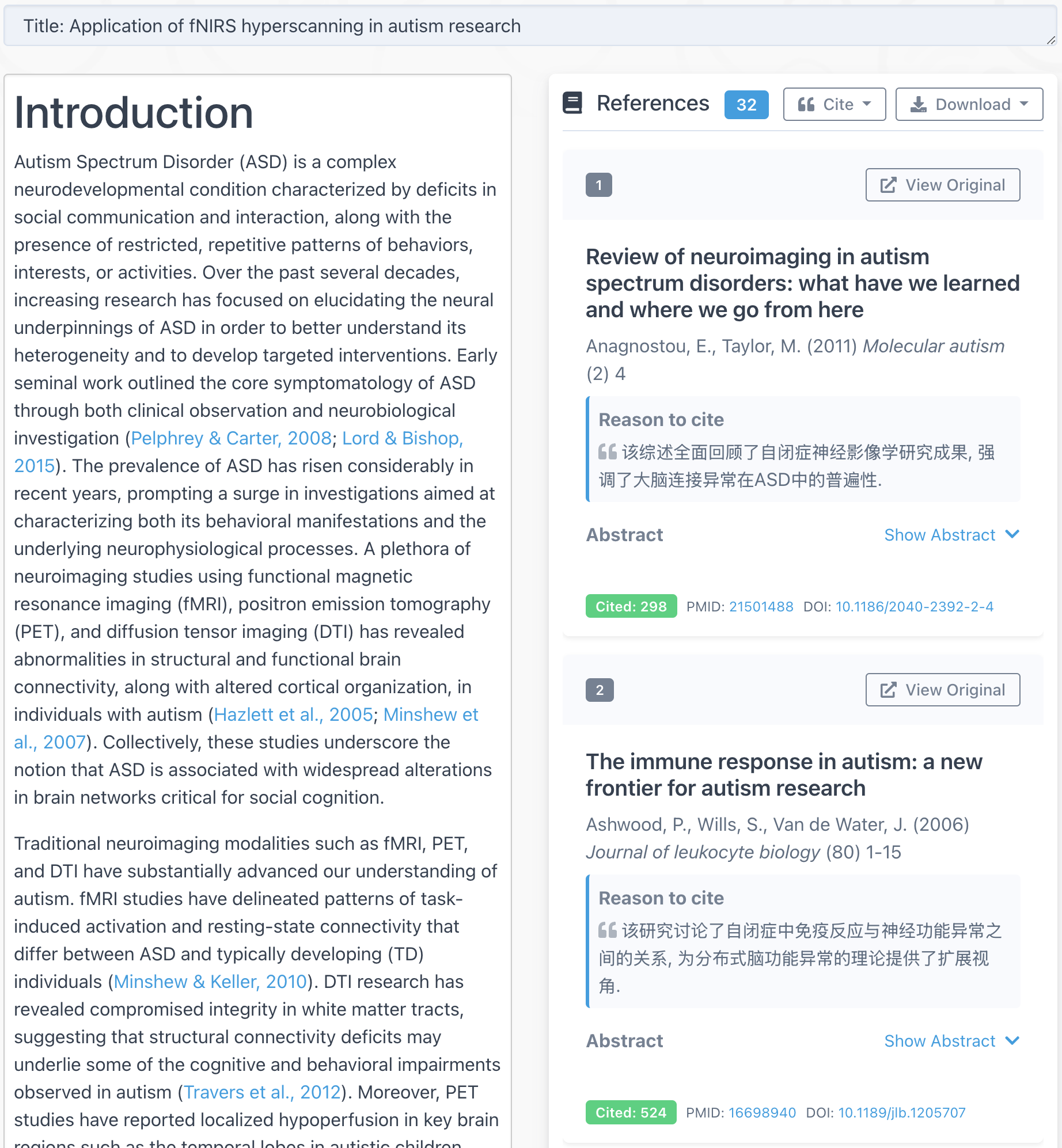
TL; DR
Podcast feature in "Listen to Papers" and “ChatPaper” lets you turn any PDF or text into a high-quality audio podcast—making academic content as addictive as your favorite podcast.
Reading papers is essential for every researcher—but let's be honest, it's not always easy to find the time to sit down and focus on dense academic texts. Between commutes, workouts, and daily chores, wouldn't it be great if your papers could talk to you?
That's the Podcast idea behind a new update to Listen to Papers and ChatPaper, a feature designed to turn academic content into something more engaging and accessible: audio podcasts.
This isn't your average text-to-speech feature. Here's what makes it stand out:
📍Conversational: Instead of flat narration, the audio mimics a two-person podcast, making complex ideas easier to follow.
📍Easy words: It simplifies academic jargon so even non-specialists can grasp the key ideas.
📍Personalization options: Customize your podcast brand name.
📍Hands-free learning: Easily download or listen online, learning anywhere and anytime.

How It Works

Creating a podcast is simple. Head over to the https://www.storkapp.me/podcast/, give your podcast a name, set your language and host details, and upload a PDF. Stork will take care of the rest.
You can stream the podcast directly, adjust speed and volume, or download the audio for offline listening.
You can also paste in any text, and it will be converted into a dialogue-style podcast episode.
Revisit past podcasts through the "History" section—play, download, or delete them as needed.

Integrated with ChatPaper

If you're already using ChatPaper to read academic literature, there's good news: you can now generate a podcast with one click while reading any paper. Seamless and efficient.
【User Reviews】
Wang Qian,
Beijing Tongren Hospital, Capital Medical University
"The podcast feature brilliantly uses a Q&A style to explain a paper's background, methods, and significance clearly and concisely. It's perfect for catching up on research during short breaks. Surprisingly, it even explains unfamiliar terms! The delivery is natural and engaging, not robotic at all – it tells the story of the research, which is fascinating! "
Xing Xiuye,
Beijing Chaoyang Hospital, Capital Medical University
"Stork's podcast feature is incredibly thoughtful and efficient, making literature review effortless. It transforms complex professional content into an engaging Q&A format that's easy to understand, perfect for listening during fragmented time like commutes. For clinicians like us, this tool masterfully blends practicality with intelligence. Highly recommended."
Su Zhaoyin,
Lanzhou University, The First Clinical Medical College of Lanzhou University
"I was genuinely shocked by how clearly this feature summarizes research, giving it a well-structured, almost programmatic feel. It effectively captures the key points and nuances of studies, comprehensively covering background, results, findings, and limitations without omission. It's incredibly useful, especially when reading feels tedious. Listening is not only easier but also more engaging and educational."
【How to use】
"Podcast" feature is part of Stork's advanced feature "Listen to Papers" (free trial is available). It’s also available in ChatPaper. After registering/logging into Stork (https://www.storkapp.me), you can find "Listen to Papers" or ChatPaper under the "Advanced Feature" section. Then you can try it out or subscribe. Alternatively, you can visit "Podcast creation" website directly at https://www.storkapp.me/podcast/
Below is a transcript from the sample episode. It offers a glimpse into how the podcast transforms rigorous scientific literature into clear, accessible dialogue.
Podcast Title: Stork Science
Source: Zwebner, Y., Miller, M., Grobgeld, N., Goldenberg, J., & Mayo, R. (2024). Can names shape facial appearance? Proceedings of the National Academy of Sciences, 121(30), e2405334121.
Note: Text in red highlights the podcast’s interpretation and commentary—it is not part of the original article.
Jamie: welcome to stork science, the podcast where we hatch fascinating, scientific discoveries. I'm your host Jamie and today we're diving into a mindbending question: can our names actually shape how we look (Intro).
Alex: And I'm Alex. Ready to unpack this incredible research with you. It sounds almost impossible, right? The idea that something is arbitrary as a name could influence our facial appearance seems like science fiction.
Jamie: But the that's exactly what researchers Yonat Zwebner and colleagues investigated in a paper recently published in the proceedings of the national academy of sciences, and their findings are genuinely surprising.
Alex: So, Jamie, let's break this down. the researchers were testing something called the face name matching effect. Basically, the idea that people might actually grow to look like their names over time (Explaining jargon in plain terms).
Jamie: Right! And they were specifically looking at whether this is something were born with, like do babies just naturally look like a Jennifer, or Michael (Bringing the topic closer to daily life)? Or if it's something that develops over time through what they call a self-fulfilling prophecy.
Alex: Exactly. And to test this, they conducted five different studies using both human participants and machine learning algorithms to see if people could match faces to names better than random chance would predict.
Jamie: The key comparison was between adults and children. If we're born looking like our names, then both adults and kids should look like their names. But if it's something that develops over time, you know, this self-fulfilling prophecy idea, then only adults would look like their names.
Alex: And what they found was fascinating. In the first two studies, they asked both adults and children to match faces with names. Consistently, participants could match adult faces to their correct names at rates significantly above chance level, but when it came to children's faces.
Jamie: They couldn't do it. The participants weren't able to match children's faces to their names any better than random guessing would predict. This was true whether the participants themselves were adults or children, which rules out the possibility that it's just about being better at recognizing faces of your own age group.
Alex: That's such a crucial control in the study design, and they didn't stop there. In their third study (The three experiments were introduced in a step-by-step manner through a natural and engaging dialogue between the hosts), they used a sophisticated machine learning approach called a triplet loss siamese neural network, which sounds incredibly complex.
Jamie: It does sound complex, but essentially, they trained this neural network to analyze facial similarities between people with the same names versus different names. And again, they found that adults who share the same name had more similar facial features compared to those with different names.
Alex: But this pattern is simply didn't exist for children. Children who shared the same name didn't have any more facial similarity than children with different names. This finding really strengthens the case that we grow to look like our names over time.
Jamie: Now here's where it gets even more interesting. The researchers wondered what if it's just the natural aging process that makes us look more like our name. So, in studies 4a and 4b, they did something really clever.
Alex: They took photos of children and used an artificial intelligence algorithm to digitally age them into adults. Then they tested whether these artificially aged faces looked like their names.
Jamie: And guess what, unlike real adults, these artificially aged faces didn't look like their names. People couldn't match these computer-generated adult faces to their correct names any better than chance.
Alex: which suggests that it's not just about biological aging. It's about the social process of living with your name. The researchers call this a self-fulfilling prophecy. Essentially, our names carry social expectations and stereotypes and over time. We may unconsciously conform to these expectations.
Jamie: Exactly, so, for example, if people have certain stereotypes about what a Brad looks like versus what a john looks like. Over time, actual Brad's and John's might start to embody those stereotypes through their expressions, hairstyles, glasses or even subtle facial muscle development from different habitual expression.
Alex: It's fascinating to think about how this might work. The paper suggests that it could happen directly, like when someone chooses a hairstyle, or glasses that fit what they think a person with their name should look like. Or it could happen indirectly, through behaviors that eventually affect facial appearance.
Jamie: Like if your name smiley, ok, that's not a real name, but you get the point. Maybe you'd smile more often which could eventually create more pronounced smile lines on your face.
Alex: Exactly! And what's particularly interesting is that children seem to learn name stereotypes pretty early. The child participants in the study could match adult faces to names above chance level. But they don't yet embody these stereotypes in their own appearance.
Jamie: That suggests there's a developmental process at work here. Children recognize the stereotypes associated with names before they start to manifest those stereotypes themselves.
Alex: I keep thinking about George Orwell's quote that the researchers mention. At 50, everyone has the face he deserves. This research suggests there might be some truth to that. Our faces may indeed develop over time to reflect social expectations, including those tied to our names (The hosts begin summarizing the study and highlighting its main conclusions).
Jamie: It's mind blowing to think that something is arbitrary as the name our parents gave us could actually influence how we look as adults. And it raises so many questions, like would this effect be stronger for people with more distinctive or unusual names?
Alex: Or what about people who go by nicknames most of their lives, or people who change their names. There are so many fascinating directions this research could go.
Jamie: Absolutely, and I think it's important to note that this is about subtle effects that emerge over time. We're not saying that all Michaels look identical or anything like that.
Alex: Right? It's about statistical patterns that only emerge when looking at large groups of people. But still, it suggests something profound about how deeply intertwined our social and physical realities are.
Jamie: It really does! We are social creatures shaped by our interactions and the expectations others have of us, apparently even down to our facial features.
Alex: So next time you meet someone and think, wow, they really look like a Jessica or whatever name comes to mind. Well, there might actually be something to that (They tie the study back to real-life situations, adding a personal and relatable touch).
Jamie: that's all for today's episode of Stork Science. If you enjoyed this discussion, please subscribe, leave a review and check out the full research paper in the proceedings of the national academy of sciences. we've linked it in the show notes.
Alex: And let us know what you think, do you feel like you look like your name? Or have you ever met someone who perfectly matched their name? We'd love to hear your thoughts until next time. I'm Alex.
Jamie: And I'm Jamie. Thanks for listening to stork science, where we had fascinating scientific discover.
Give it a try with a paper you’ve been meaning to read—you might find yourself learning in a whole new way.

